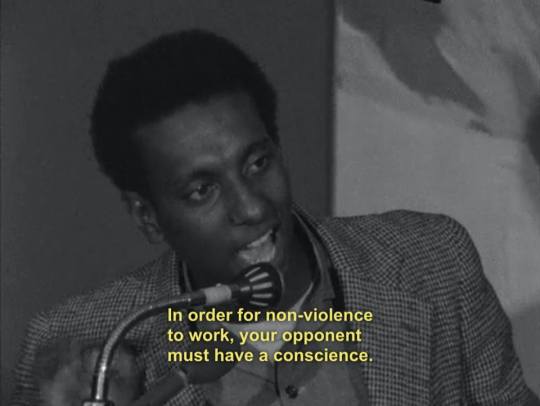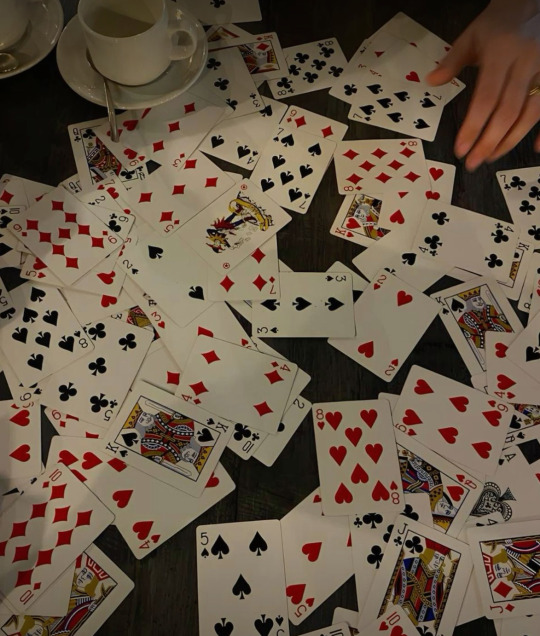ana, 13, she/her, cis girl, circus performer, gothic, punkrock,disabled. acrobat, dancer, clown. girl rage. cripplepunk. intersectional feminism. animal lover. (I do moodboard comms)
Last active 60 minutes ago
Don't wanna be here? Send us removal request.
Text


[ID: Two black and white photos of Kwame Tu/Stokely Carmichael, a young Black man, saying into a microphone with a sardonic expression, "In order for non-violence to work, your opponent must have a conscience. The United States has none, has none." End ID.]
6K notes
·
View notes
Text
Reading to fill the void

#ana reblogs#girlhood#girlblogging#this is what makes us girls#hell is a teenage girl#six of crows#books#reading#grishaverse#book girl#books and reading#bookworm#crooked kingdom#soc#soc ck#ck#inej ghafa#kaz brekker#kanej#helnik#wesper#nina zenik#wylan van eck#matthias helvar#jesper fahey#books and coffee#teenage life#childhood
11 notes
·
View notes
Text
openly lesbian drag queen 6 six time grammy nominated and defending trans right on red carpet oh chappell roan the woman that you are
839 notes
·
View notes
Text
Kaz Brekker

834 notes
·
View notes
Text
magician kaz my beloved. I love the representation of all their dynamics in this btw
*Crow conversation overheard on the streets of Ketterdam* Inej: *shivers* hey Kaz, I'm a little cold do you think you could, you know Kaz: of course *snaps fingers* Jesper: *takes off coat and hands it to Inej* Inej: thanks Wylan: wait. what if I'm cold too? Jesper: oh, well then *snaps fingers" Kaz: *fans fingers out magician-ly, reaches inside coat to pull out, you guessed it, another coat that he hands to Wylan Wylan: *visibly confused* thank you? I think? Inej & Jesper: *clap enthusiastically* Kaz:*bows dramatically*
*Meanwhile trailing a little ways behind them* Nina: *snorts* lol can you believe those dorks Matthias: HoLy sHiT Nina did you see that!?!?! He pulled that coat out of NOWHERE!!!
#ana reblogs#kaz brekker#jesper fahey#inej ghafa#wylan van eck#nina zenik#matthias helvar#six of crows#books#grishaverse
96 notes
·
View notes
Text
a revolutionary friendship fr
inej and jesper's friendship in six of crows is actually so sweet and wholesome
23 notes
·
View notes
Text
I’m literally sobbing this was so tragic. a battle between desire and disgust
He thought of Inej’s hand on his cheek. His mind had gone jagged at the sensation, a riot of confusion. It had been terror and disgust and—in all of that clamor—desire, a wish that lingered still, the hope that she would touch him again.
Six of Crows- Chapter 38 (Leigh Bardugo)
Quite literally "What is this? Affection? Disgusting. Do it again.".
7 notes
·
View notes
Text




2K notes
·
View notes
Text
turned 18 the other day and idk I feel like i’m saying goodbye to something I never even got to have. idk there’s a certain grief in losing your childhood when you’ve been grieving since you were five.
5 notes
·
View notes
Text
I’m so glad that after ck kaz is finally free and that there’s no one ‘holding his leash’ anymore, not to mention he’s the king of the barrel. I’m so happy for my boy 😭
15 notes
·
View notes
Text


Today the sky looked like straight from a van gogh painting
52K notes
·
View notes
Text
this is so true. personalise your stuff!
I love personalizing everything. It shows that I own the thing. If you never personalize stuff, you'll die with nothing to your name. Nothing will really be yours. Personalizing is a way of showing your personality through decorating your stuff. It's owning the thing and not just having it.
#ana reblogs#girlhood#this is what makes us girls#girlblogging#hell is a teenage girl#teenage life#childhood#diy
13 notes
·
View notes
Text
the fact that kaz and inej both have such intense, soul shattering trauma, and they understand each other on such a personal level, and their relationship (as put by my older sibling) is built on trust and mutual aid, and they constantly enable and help each other, and they make each other stronger, and they know each other like no one else, and kaz thinks that inej is like magic, and inej thinks that kaz is like a miracle, and they bring each other back when they’re triggered or having flashbacks, and kaz always sees inej, and inej’s voice keeps kaz above the water, and they rely on each other, and they are always looking for the other when they’re not there, and they’re best friends, and they love no one more in the world, and they have basically become family, and kaz reunited her with her family, and they save each other’s lives, and inej usually keeps kaz company on the stairs, and kaz gave inej her knives, and they’re twin soldiers, and they both always pretend they’re fine, and kaz gave inej her ship so that she could pursue her dreams and her cause, and inej goes on voyages but always returns to kaz. kanej 😭
#ana posts#kanej#kaz brekker#inej ghafa#six of crows#crooked kingdom#grishaverse#books#soc ck#soc#ck#kaz and inej#kaz x inej#inej x kaz#dirtyhands#the wraith#six of crows fandom#six of crows duology
50 notes
·
View notes
Text










🖤💌✨
#ana posts#moodboard#aesthetic#chaotic academia#goth#gothic#punk rock#rock#music#nature#indie#indie rock#academia moodboard#hell is a teenage girl#books#girlblogging#academia vibes#chaotic academic aesthetic#mall goth aesthetuc#streetwear#grunge#grungy#art#artwork#cards#candy#butterflies#books and coffee
31 notes
·
View notes
Text

4K notes
·
View notes
Text

February 22nd 2024
#ana reblogs#goth#gothic#eerie#spooky#pretty#aesthetic#girlhood#this is what makes us girls#girlblogging#hell is a teenage girl#teenage life#childhood#trinkets#collecting#collection#chaotic academia
13 notes
·
View notes
Text



nightscapes
Peter Smyth
6 notes
·
View notes